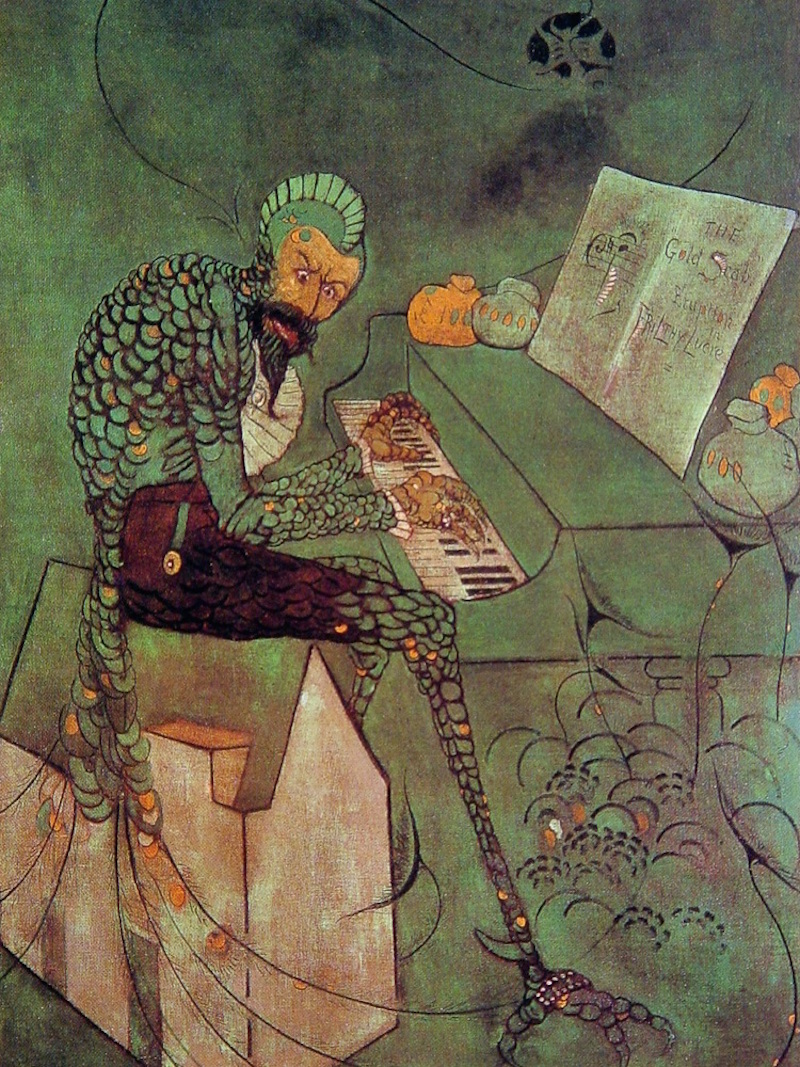



The Gold Scab: Eruption in Frilthy Lucre (The Creditor)
oil on canvas • 139.7 x 186 cm
On the previous Wednesday Thoughts on Art two weeks ago, we were left wondering with a handful of questions. These were meant to query Tolstoy’s perspective towards art, and test the “Art as an honest message” concept.
For if art is the fruit of communication, “the true inner expression of its Maker when perceived by the hearer”, then too much of the art definition is determined both by the public — what if the message transmitted is so singular that it doesn't echo in someone else?; and by the artist — what if there is no message being transmitted, or the feeling expressed is fabricated and not sincere?
If the value of a piece was determined by its message, wouldn't we be valuing not the piece but the information it carries? If we consider the autonomy of the “true message”, we would start to see the piece only as the support of what it's being communicated. And that is not what happens, we tend to regard the piece as unique and indispensable. In the same way, we don´t regard different pieces of art with the same sincerity and caring the same message as having the same artistic value.
This does’t mean that Art shouldn’t have a message, but it shouldn't extract from the message the utility to justify itself as Art. Art should be, in Oscar Wilde perspective, Useless.
This being, with no means to an end…
(bias Alert!) I struggle with the need for art to be justified. Why can’t it be only - and “only” here not limiting but stressing the limitless possibilities - a singular emanation of circumstances: enhanced by thought, beauty, randomness, whatever the unsettling chaos of living might condense on. If we are to have any value on a century of ever growing “brain-power” computers, that dominate the realm of analytical properties, we need to value the unique set of circumstances that develop the individual, such as imagination, intuition, vulnerability… And here is where Art should stand independent.
We’ll have a deeper look at Oscar Wilde, Baudelaire, and the Decadent and Aesthetic movement next week
Artur Deus Dionisio
 James Abbott McNeill Whistler
James Abbott McNeill Whistler